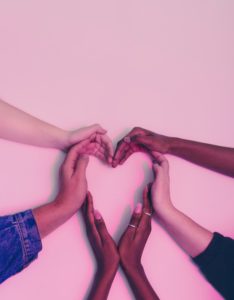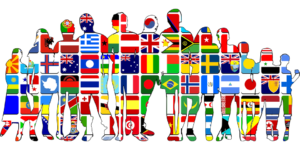Have you ever had a difference of opinion where you had to educate yourself further about the topic at hand? At times, we need to practice tolerance, i.e. respect and learn to accept different perspectives, cultures and beliefs. The reason is simple: Tolerance and acceptance of our differences and reaching a peaceful solution to a conflict enable us to create a better world around us.
Tolerance, according to the United Nations, is defined as “respect, acceptance and appreciation of the rich diversity of our world’s cultures, our forms of expression and ways of being human”. It is to openly respect the views or beliefs of people belonging to different ethnic backgrounds or social groups. Human rights are at the heart of this philosophy, and tolerance is to be supported not just at the individual level but by the State as well. It upholds the idea that humanity has the right to live in peace and harmony. Therefore, to promote awareness about tolerance and mutual understanding, we celebrate the International Tolerance Day on 16 November every year.
The International Day for Tolerance promotes the idea that education is a critical component in combatting intolerance throughout the world. It is a reminder for us to be more tolerant towards each other and to try and eradicate any hate and discrimination that exists around us. It was first celebrated in 1996 to create public awareness regarding the dangers of intolerance, following the year of tolerance by the UN in 1995, initiated by UNESCO. The main goal was to inculcate tolerance as the core value amongst educational institutions and the masses.
Climate change and climate justice are the theme of International Day of Tolerance this year. The effects of having an “us vs they” approach, in the context of rise of nationalism globally, have been more evident than ever since the pandemic. We have an unequal distribution of limited resources and have a history of decades and centuries of exploiting some people and nations for the benefit of others. Climate change has significantly affected poorer countries resulting in large scale economic migration to countries where intolerance is on the rise. That is why the ‘Learn2Think Foundation’ has chosen the theme ‘Be Climate Clever‘ this year.
The activities and ceremonies around Tolerance Day are centered on acts of eradicating hatred and discrimination around us. Tolerance is often discussed in the context of celebration of diversity but it is the driving force behind the formation of diverse groups and cultures. Promotion of tolerance can be addressed through training sessions as well as the use of various media. Here are some of the ways in which you can participate:
- Support and celebrate human rights activists who actively try to uphold laws regarding basic human rights such as injustice, discrimination, and hate crimes.
- Try to learn something new about a different social or religious group around you and practice solidarity with them.
- Acknowledge the right of your friends and acquaintances to have different points of view, and strive to have a better understanding of their opinions.
- Be respectful, friendly and welcoming in your community and work place.
- Commit yourself to nonviolence and speak up for others when you see discrimination and unjust treatment.
- Counsel students and young people about the basic human rights, including but not limited to sharing information about the UN Declaration of Human Rights.

There are plenty of examples of intolerance and discrimination faced by minorities throughout the world. While the fastest growing ethnic group in the US is of Asians, they also became the greatest victims of hate crimes and discrimination, both in the real world and on social media, in the wake of Covid-19. On the other hand, the humanitarian crisis on the border of Belarus and Poland has been escalating since the past few months as well. While Belarus is accused of “hybrid warfare”, Poland has also been promoting hate and racial stereotypes to dehumanize the refugees seeking asylum.
Therefore, it is obvious that a lot of work needs to be done in regards to promotion of tolerance and acceptance. Sexism, racism, homophobia and extremism are those ills of society that should be eradicated in order for society to progress. We should encourage diversity in our workforces and strive to learn more about social and religious groups that are different from us. It is only by the use of critical thinking and with compassion that we can create a more tolerant and a peaceful world around us.








